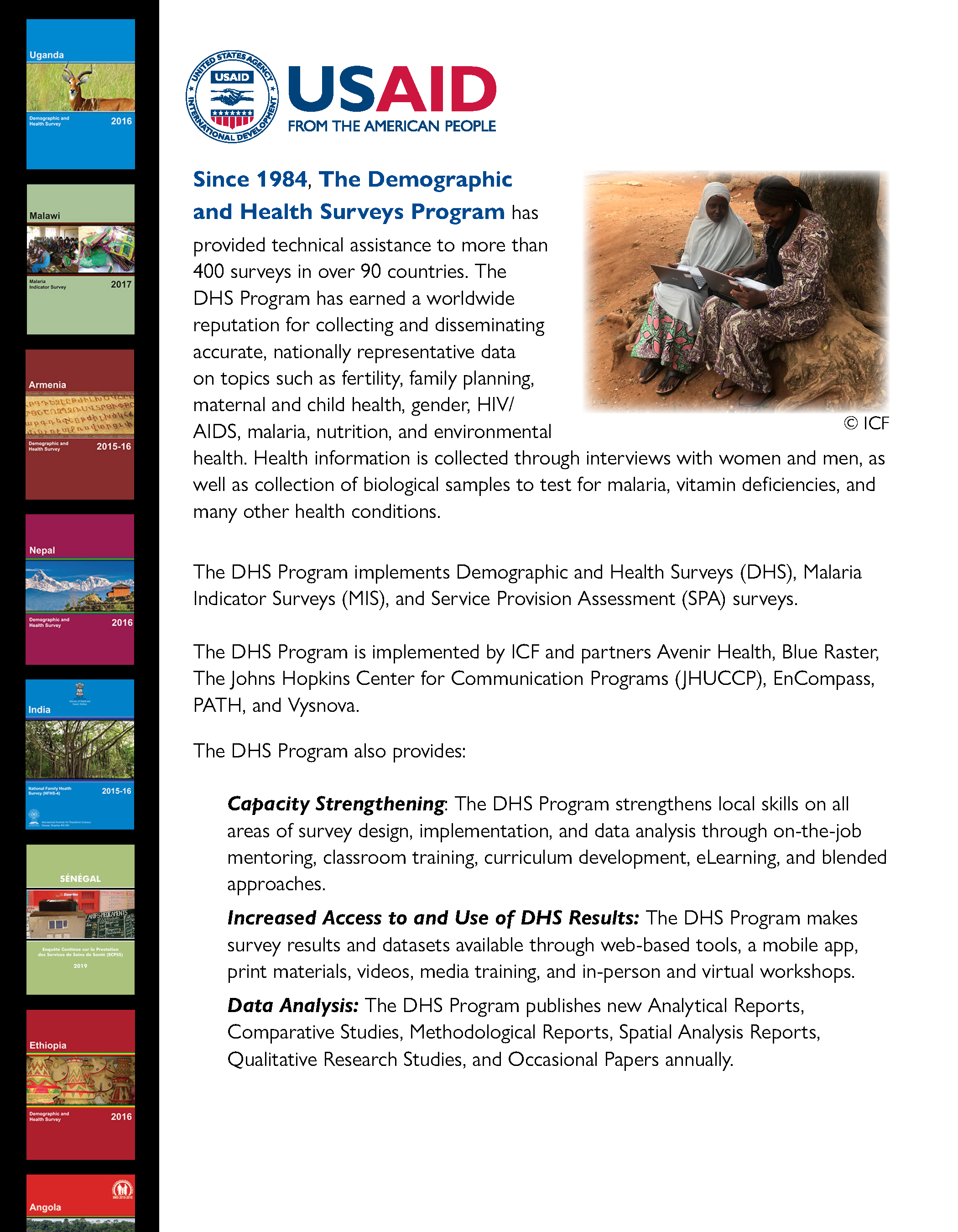Press Releases
Lack of basic health information threatens young people’s futures, global study finds
Calverton, MD – Across the developing world, thousands of young adults do not know how to protect themselves from HIV, other sexually transmitted infections, and unwanted pregnancies, according to a new global study on youth. Only about a third of young women in Egypt, Jordan, and Indonesia, for example, know that using condoms can reduce the risk of HIV infection. In most of the 33 countries studied, less than a third of young women know when they are fertile during their monthly cycles.
Youth Reproductive and Sexual Health exposes serious gaps in basic health knowledge among youth around the world. The study compares key reproductive and sexual health indicators for young women and men age 15-24 in 38 developing countries throughout Africa, Asia, Latin America and the Caribbean. The data come from Demographic and Health Surveys (DHS) and AIDS Indicators Surveys (AIS) conducted between 2001 and 2005.
This lack of knowledge directly impacts youth’s reproductive and sexual health, often for the worse. Many young women, for instance, start childbearing before they are physically and emotionally ready to be mothers. Teen pregnancy rates range from a low of 4 percent among women age 15-19 in Rwanda and Vietnam to a high of 42 percent in Mali and 43 percent in Mozambique. More than 20 percent of young women age 15-19 have been pregnant in 20 out of 26 countries in sub-Saharan Africa and South/Southeast Asia, according to the study. Rural women are more likely to have been pregnant than their urban peers and young, married women are most likely to have ever been pregnant. Induced abortions among adolescents are rare, the study found.
Although most young adults know about modern contraception, many of them are not using it. In 16 of 21 sub-Saharan African countries, less than 20 percent of young married women use a modern method to practice family planning. Among married young women around the world, use of modern methods ranges from a low of 2 percent in Chad to a high of 60 percent in Nicaragua. Compounding the problem, few young women and men in any country can correctly identify a woman’s fertile period, information that is essential for effective use of the rhythm method and other traditional family planning practices.
HIV Infection is a Major Risk for Young People
Nearly 40 percent of new HIV infections occur among young adults age 15-24, according to the United Nations Population Fund. Yet most young people do not know the basics of how to protect themselves from getting HIV, the study reveals. Less than one-third of young women in 14 countries, for example, can identify the three major ways to prevent transmission of HIV—abstinence, monogamy, and condom use. Young men are slightly more likely to know about these critical ABCs. At the same time, very few young adults in any region of the world ever get tested for HIV. Less than one in five women in all but three countries has ever been tested for HIV.
Condoms are a key to preventing HIV, STIs and unwanted pregnancy, but few sexually active young adults use them. In almost all countries, the majority of young women who had higher-risk sex in the past 12 months did not use a condom, except in Uganda (53 percent), Burkina Faso (54 percent), and Guyana (62 percent). Similar patterns are found for young men, but they are more likely than young women to say they used a condom when they last had higher-risk sex.
HIV-related stigma continues to be a major problem among youth throughout the developing world, the study shows. In 15 of 22 countries, most young women would not buy vegetables from an infected vegetable vendor. In 11 out of 24 countries, less than 50 percent of young men feel that an HIV-infected teacher should be allowed to teach.
The Demographic and Health Surveys are funded by the United States Agency for International Development through the MEASURE DHS project.
